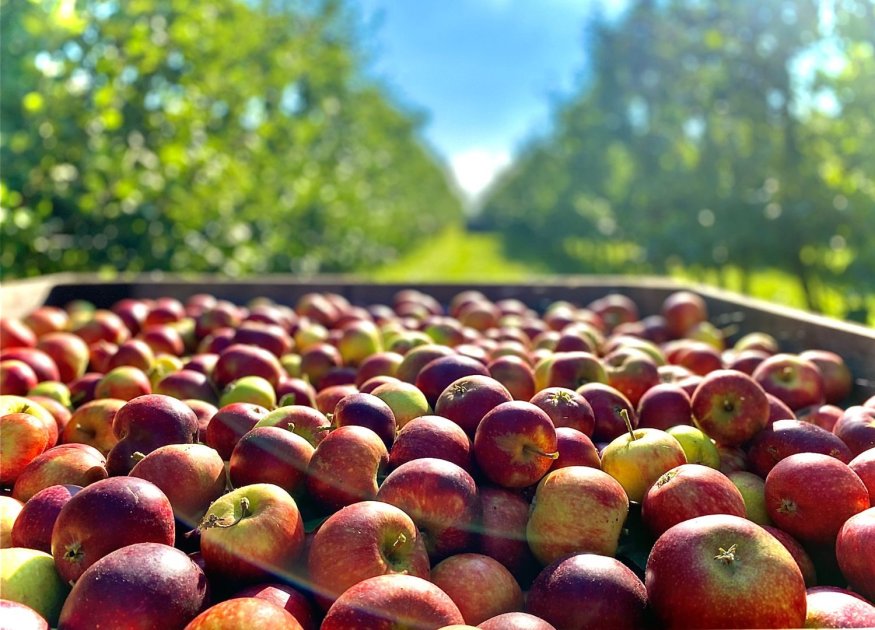- This topic is empty.
- AuthorPosts
- Febuari 12, 2025 at 11:26 mu #562188

Apple farming, like many other agricultural practices, faces numerous challenges, including soil degradation, climate variability, and the ever-increasing demand for sustainable production methods.
To address these challenges, the concept of an Integrated Soil-Fruit-Climate Management System (ISFCMS) has emerged as a holistic approach that aims to optimize apple production.
This system takes into account the interaction between soil health, fruit growth, and climate conditions, providing farmers with a comprehensive framework to enhance apple farming efficiency.
This article explores how integrating soil management, fruit cultivation practices, and climate considerations can improve apple farming and lead to more sustainable, productive outcomes.
1. The Importance of Soil Health in Apple Farming
Soil health is a critical factor in the success of apple farming. Healthy soil provides essential nutrients, improves water retention, and supports a thriving ecosystem of beneficial microorganisms.
A well-managed soil system can boost root development, enhance nutrient absorption, and ultimately lead to higher fruit yields and better-quality apples.
An integrated soil management approach involves practices such as crop rotation, organic fertilization, mulching, and soil aeration, which help maintain or improve soil structure and fertility.
These practices, when combined with the correct pH levels and nutrient balance, create a conducive environment for apple trees to thrive.
2. Optimizing Fruit Growth with Sustainable Practices
Sustainable fruit cultivation practices are essential for improving apple production while minimizing environmental impact.
In an integrated system, these practices focus on optimizing growth conditions for apple trees by considering factors such as pruning, irrigation, and pest management. For instance, efficient irrigation systems, like drip irrigation, help ensure that water is delivered directly to the roots, reducing waste and ensuring the trees receive adequate moisture.
Integrated pest management (IPM) is another key component of fruit growth optimization, reducing the reliance on chemical pesticides and promoting natural pest control through biological and mechanical methods.
By integrating these sustainable practices, farmers can produce apples that are healthier, higher yielding, and more resilient to pests and diseases.
3. Addressing Climate Variability in Apple Farming
Climate change has increasingly affected apple farming, with shifting weather patterns, temperature fluctuations, and erratic rainfall making it difficult for farmers to predict and adapt.
The Integrated Soil-Fruit-Climate Management System focuses on addressing these climate challenges by incorporating climate-smart practices.
These include selecting apple varieties that are more resistant to extreme weather, adjusting planting schedules based on temperature predictions, and using protective measures like shade nets or windbreaks to shield trees from harsh environmental conditions.
Additionally, climate-resilient practices like soil conservation, water management, and agroforestry help mitigate the negative impacts of climate change, ensuring that apple farming remains viable even in fluctuating climates.
4. Synergies Between Soil, Fruit, and Climate
The true strength of an Integrated Soil-Fruit-Climate Management System lies in the synergies it creates between soil management, fruit cultivation, and climate considerations.
For example, healthy soils improve the water retention capacity of the land, which becomes especially important during periods of drought or inconsistent rainfall. By improving the efficiency of water usage, farmers can ensure consistent apple tree growth despite climate variability.
Moreover, integrating agroecological practices such as intercropping or cover cropping helps maintain soil fertility while offering additional income sources for farmers. This system emphasizes the interconnectedness of these three components, leading to more efficient and sustainable apple farming.
5. Benefits of ISFCMS for Apple Farming
The Integrated Soil-Fruit-Climate Management System provides numerous benefits for apple farmers. By focusing on the holistic management of soil, fruit, and climate, this system helps increase apple yields and improve the quality of the fruit.
Furthermore, it fosters resilience against environmental stressors, such as droughts and extreme temperatures, which are becoming more common due to climate change. The system also reduces dependency on chemical inputs, promoting sustainable farming practices that are both environmentally and economically beneficial.
Ultimately, ISFCMS offers a comprehensive solution for farmers seeking to improve apple production while maintaining environmental health and sustainability.
The Integrated Soil-Fruit-Climate Management System is a forward-thinking approach to improving apple farming that addresses the challenges posed by soil health, climate change, and sustainable farming practices.
By integrating soil management, fruit cultivation techniques, and climate-smart strategies, apple farmers can achieve higher yields, better fruit quality, and greater resilience against environmental stresses.
This holistic approach not only enhances the productivity of apple farms but also promotes long-term sustainability in agriculture. In conclusion, adopting the ISFCMS can significantly improve apple farming by ensuring that all aspects of the farming system work in harmony, leading to more efficient and eco-friendly production practices.
- AuthorPosts
- You must be logged in to reply to this topic.

